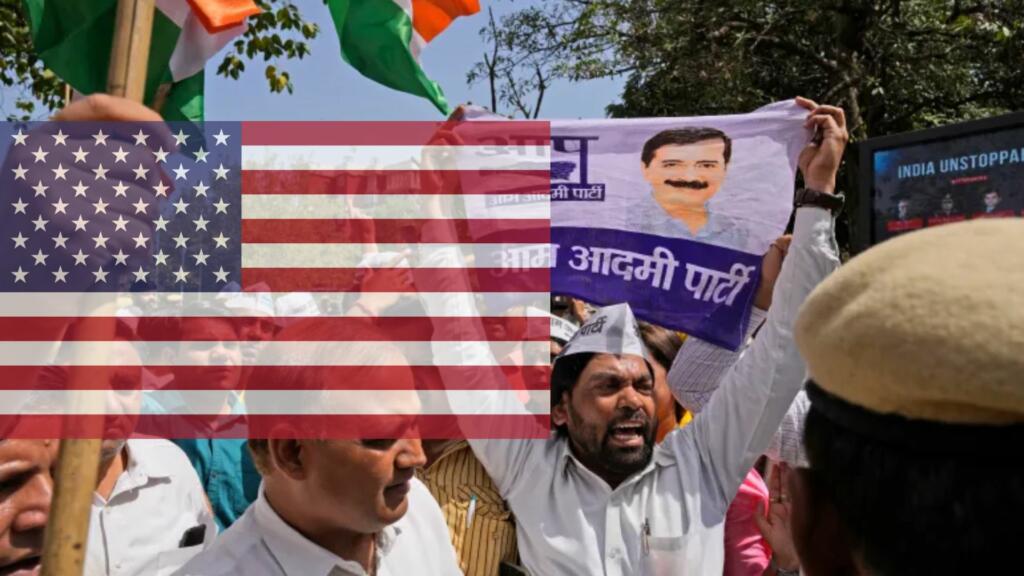Diplomatic relations between nations often navigate a labyrinth of complexities, where every move carries implications for alliances, interests, and global perceptions. In recent times, the relationship between the United States and India has been under scrutiny, particularly regarding the US’s tendency to involve itself in India’s internal affairs. The recent arrest of opposition leader Arvind Kejriwal has sparked debate and raised questions about the motivations behind such interference.
To understand the current dynamics between the US and India, one must delve into the historical tapestry that defines their relationship. Despite being democracies, the two nations have experienced periods of tension and cooperation, often influenced by divergent interests and historical sensitivities. However, in recent years, efforts have been made to strengthen ties, driven by shared strategic objectives and economic opportunities. Yet, historical legacies and differing perspectives on various issues continue to influence their interactions, setting the backdrop for contemporary diplomatic engagements.
Strategic Considerations
A primary driver behind the US’s interest in India’s internal affairs lies in its broader strategic calculus, particularly in the Indo-Pacific region. As China’s influence expands, the US seeks to bolster alliances and partnerships to counterbalance Beijing’s power. In this context, India’s democratic institutions and human rights record are seen as critical indicators of the strength of their partnership. Thus, when events such as Kejriwal’s arrest occur, the US feels compelled to weigh in, reflecting its strategic interests and regional ambitions.
Another compelling factor propelling US involvement in India’s internal affairs is its commitment to promoting human rights and democratic principles globally. As a staunch advocate for democracy, the US often finds itself compelled to speak out against perceived injustices, regardless of the country’s political alignment. In the case of Kejriwal’s arrest, concerns over the fairness of the legal process and the independence of the judiciary prompted US officials to voice their opinions, reflecting a broader commitment to upholding democratic norms worldwide.
Global Leadership
Moreover, the US sees itself as a global leader and guardian of international norms and standards. It perceives a responsibility to hold nations accountable for their actions, especially when they undermine democratic principles or human rights. By engaging in commentary on events like Kejriwal’s arrest, the US seeks to assert its influence and shape global perceptions of acceptable behavior among nations. India’s status as the world’s largest democracy makes it a particularly significant target for US scrutiny and commentary, reflecting the depth of their engagement and the stakes involved.
India’s Strong Stance
India strongly rebukes the remarks made by the United States concerning the arrest of Delhi Chief Minister Arvind Kejriwal. The Indian foreign ministry emphasizes that India’s legal processes are founded upon an independent judiciary committed to delivering fair and timely outcomes. India categorically denounces any casting of doubt on its judicial system, terming such actions as unwarranted interference in its internal affairs.
In diplomatic relations, India underscores the importance of respecting the sovereignty and internal affairs of fellow democracies. It asserts that such respect is imperative to maintain healthy diplomatic precedents and relationships. India condemns any attempts by foreign entities to undermine its judicial process or challenge the independence of its judiciary.
The government of India stresses that the arrest of Arvind Kejriwal is based on legal grounds and denies any political interference in the matter. It asserts that the accusations against Kejriwal are being handled through established legal procedures, and he will receive a fair and impartial trial as guaranteed by India’s democratic principles.
Moreover, India expresses disappointment over similar comments made by Germany, another democratic ally, regarding Kejriwal’s arrest. It underscores the need for foreign governments to refrain from making biased assumptions and interfering in India’s judicial processes.
Challenges and Complexities
However, the intersection of strategic interests, values, and global leadership aspirations presents numerous challenges and complexities in diplomatic engagement. While the US may view its involvement in India’s internal affairs as a reflection of its commitment to democracy and human rights, such actions can be perceived as interference or infringement on sovereignty by the Indian government. Additionally, differing perspectives on issues such as national security and domestic governance further complicate the relationship, requiring careful navigation to avoid escalation and maintain cooperation.
What Next?
As the US and India navigate their relationship in the 21st century, it becomes imperative to find common ground while respecting each other’s sovereignty and interests. Constructive dialogue and engagement based on mutual respect and understanding can help address areas of disagreement while fostering collaboration on shared challenges and opportunities. Moreover, recognizing the complexities and nuances of each other’s internal dynamics is essential for building trust and forging a durable partnership that benefits both nations and the broader international community.
The intricacies of diplomatic engagement between the United States and India underscore the multifaceted nature of international relations. While strategic interests, values, and global leadership aspirations drive US involvement in India’s internal affairs, navigating these dynamics requires sensitivity, tact, and a commitment to mutual respect. By understanding the underlying motivations and complexities shaping their relationship, both nations can chart a course towards constructive engagement and cooperation, advancing their shared interests and contributing to global peace and prosperity.
Also Read: India’s Strong Message to US, “Enough is Enough and Stop Interfering”
